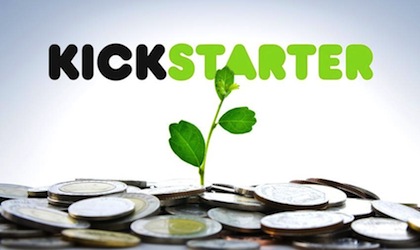Founded in 2009, Kickstarter is a NYC-based company that, to date, has helped inventors, entrepreneurs, musicians, publishers, and many more creative types raise more than $659 million online.
The value proposition is that if you would like to obtain financial support for an idea or prototype, you can create a project on the website with a specific fundraising goal. A project proposal typically includes a short video, links to previous work, and a description that includes the “risks and challenges” the project creator may face when using the funds raised to create the product.
In addition, for hardware or product design projects, the fundraising project cannot act as “preorder” for the finished product. The product must be in development or prototype stage and the creators must be clear about the progress they have made thus far.
Despite setting a fundraising goal, the project can continue to collect funds from backers as long as the project duration has not expired. Fundraising projects can run for 1-60 days, though Kickstarter recommends a 30 day project, as from their research, 30 day projects create a sense of urgency and statistically perform better.
Why do people back projects on Kickstarter?
You may be wondering why people from around the world are willing to give their money to creative types that they may never have met in person. Is it because the “pledge” represents an investment? No. Backers do not receive equity or ownership rights for their financial contributions. Is the “pledge” charity? Well, not exactly.
As a part of every Kickstarter project proposal, the creator offers “reward tiers,” where depending on how much money you pledge, you will receive different perks ranging from a copy of the product to a production credit for film projects.
Check out some examples below!
The Pebble Watch Raised $10 million on Kickstarter. See more details here.
The OUYA open source gaming consol raised $8.6 million on Kickstarter. More details here.
Not only do people back individuals on Kickstarter for the perks attached, but many also believe in the creator, the product, and want to be a part of the process of bringing the project to life.
What types of projects exist on Kickstarter?
You name it from established musicians, raising money for their upcoming album, to up-and-coming comic book creators who are looking to gauge interest for their creation and gather a following.
Kickstarter terms of service require that project proposals fall into one of the following categories: Art, Comics, Dance, Design, Fashion, Film, Food, Games, Music, Photography, Publishing, Technology, and Theater.
What types projects are not allowed on Kickstarter?
Please see the list below:
– Kickstarter cannot be used to raise money for causes, whether it’s the Red Cross or a scholarship, or for “fund my life” projects, like tuition or bills.
– Kickstarter cannot be used to sell equity or solicit loans.
– Projects cannot resell items or offer rewards not produced by the project or its creator.
– Creators cannot promise to donate a portion of funds raised or future revenue to a cause.
– Projects cannot offer rewards in bulk quantities (more than 10).
– Kickstarter cannot be used to fund e-commerce, business, and social networking websites or apps.
– Kickstarter cannot be used to fund software projects not run by the developers themselves.
– Kickstarter cannot be used to buy real estate.
– Projects cannot offer alcohol as a reward.
– Projects cannot offer financial, medical, or health advice.
– No offensive material (hate speech, etc.); pornographic material; or projects endorsing or opposing a political candidate.
– No tobacco, drugs, and drug paraphernalia; energy food and drinks; or nutritional supplements.
– No contests, raffles, coupons, or lifetime memberships.
– No bath, beauty, and cosmetic products; electronic surveillance equipment; eyewear (sunglasses, prescription glasses, and others); firearms, weapons, knives, weapon accessories, and replicas of weapons; medical, health, safety, and personal care products; or infomercial-type products.
Who can raise money on Kickstarter?
If you are a permanent resident of the United States or the United Kingdom and are over the age of 18, you can raise money on the Kickstarter platform. You can also raise money if you are a business or nonprofit. For more information see creator requirements.
So why should I care about Kickstarter?
Kickstarter is part of the Makers Movement, where more and more creators are financing and producing their work independently. Whether you are talking about the decreasing need for authors to get their book out through a major publishing house or artists to sign on to record label in order to gatherer a following, the internet is changing the way in which high-quality products and their creators gather a customer base and obtain funds for R&D and expansion.
Become a part of the Makers Movement and check out Kickstarter!






